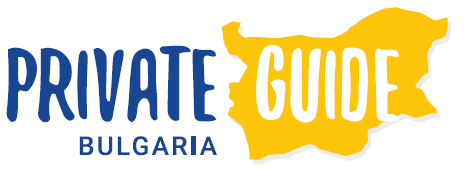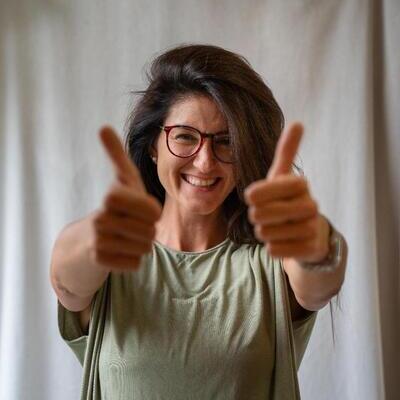Visit the Kukeri Festival Surva 2025
A magical tour to the folklore
carnival in Pernik, Bulgaria
- Local guide who will explain all traditions
- Private comfortable transport
- Pickup from your hotel in Sofia
⭐️⭐️⭐️⭐️⭐️ Top rated on TripAdvisor
The Kukeri are one of the oldest and most fascinating of Bulgarian traditions. Once a year, people all across the country will dress as these monsters to enter into public games and parades. The largest Kukeri festival of them all is in Pernik – home to the International Bulgarian Festival of Masquerade Games, or ‘Surva’ Festival. This year it’s happening from January 24th to 26th 2025.
Join us on a tour of the Surva Festival or some of the other Kukeri festivals in Bulgaria, and you’ll get to see the largest gathering of Kukeri in the world! Experience this UNESCO-recognised folk tradition up close, and join the thousands of people who travel here each year to be a part of the carnival.
Official program for Surva Festival 2025 in Pernik, Bulgaria →
Tour Details
- Festival dates: January 24th to 26th 2025
- Location: Pernik, Bulgaria
- Meeting Point: In front of your hotel or other preferred location
- Tour Duration: 6-7 hours
- Best Period: Winter
- Transportation: Private transfer
- Tour Type: Historical, cultural, and local insights tour
Highlights
- Enjoy all the benefits of having a knowledgeable, local tour guide at your disposal.
- Learn about the history of the Surva festival, and meet the local performers.
- On our tours, you’ll never be a spectator – instead, we’ll get right into the middle of the parade.
- See and touch the Kukeri masks or join in the dances and enjoy the Surva festival like a local.
- Try traditional food and drinks typical for all the folk celebrations in Bulgaria.

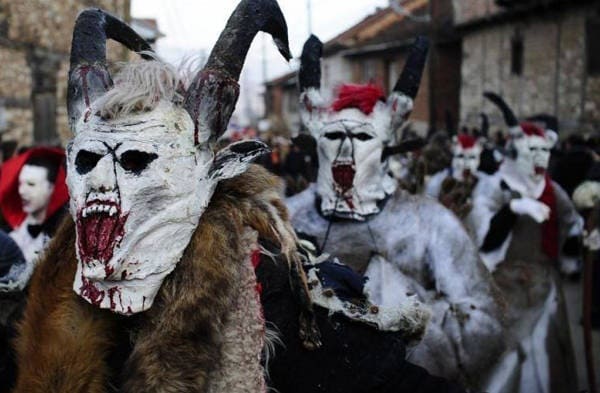
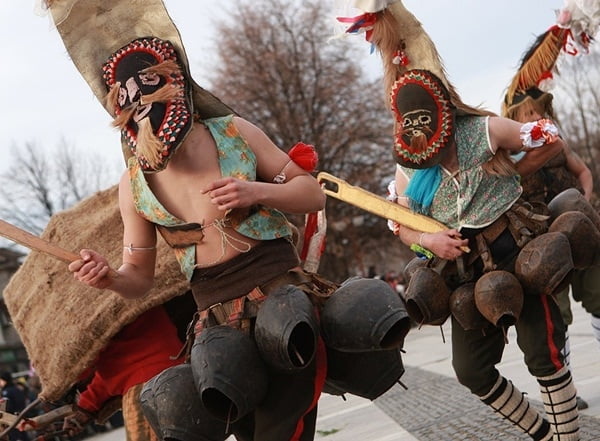
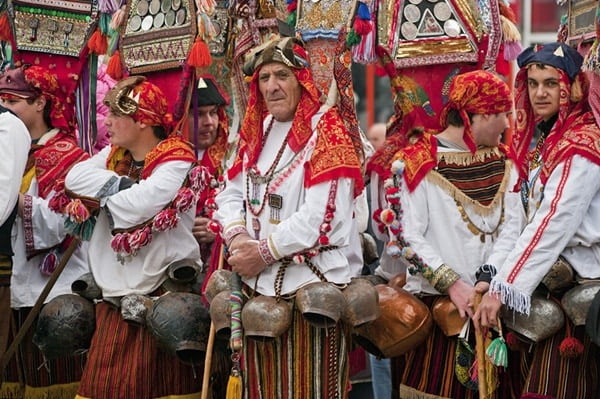
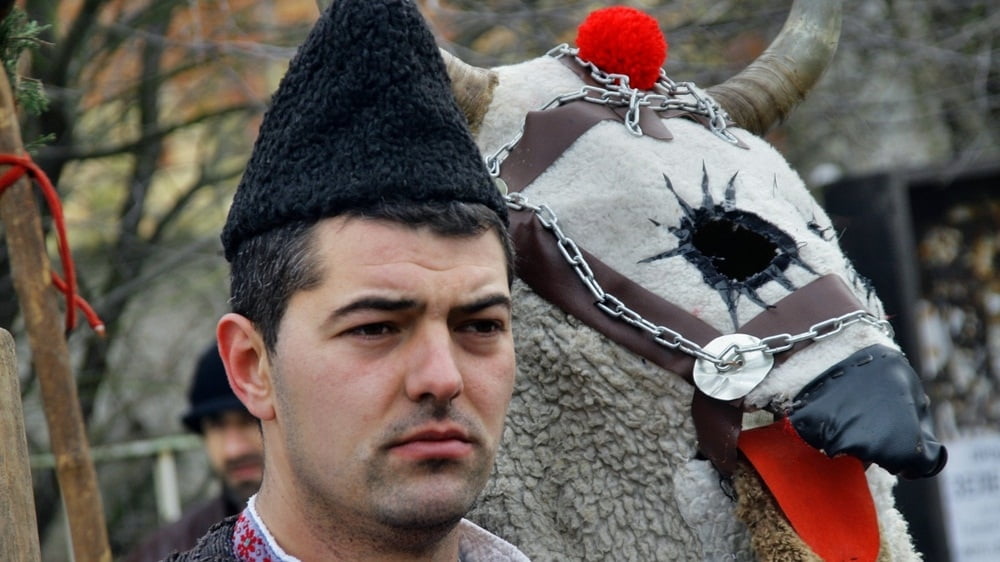
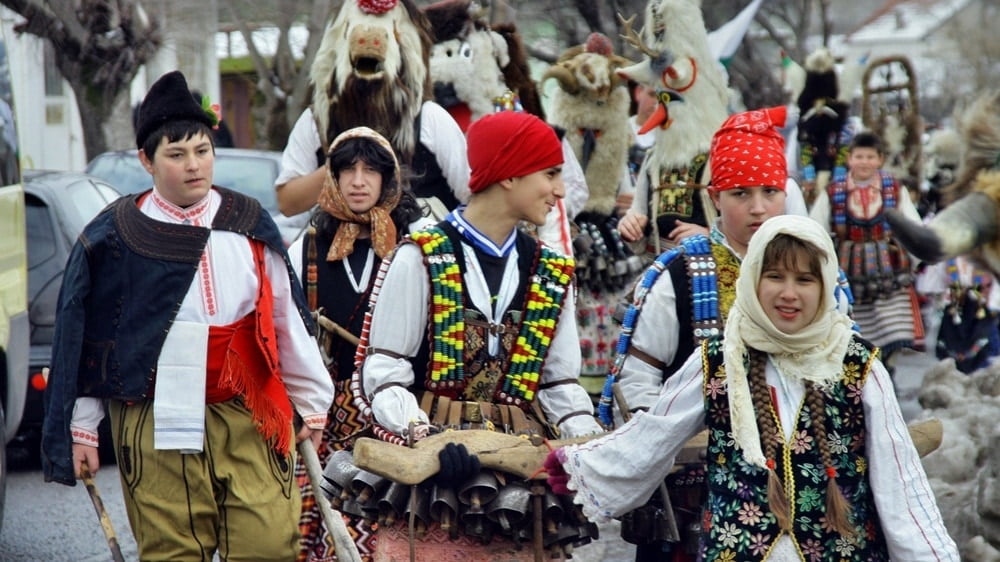
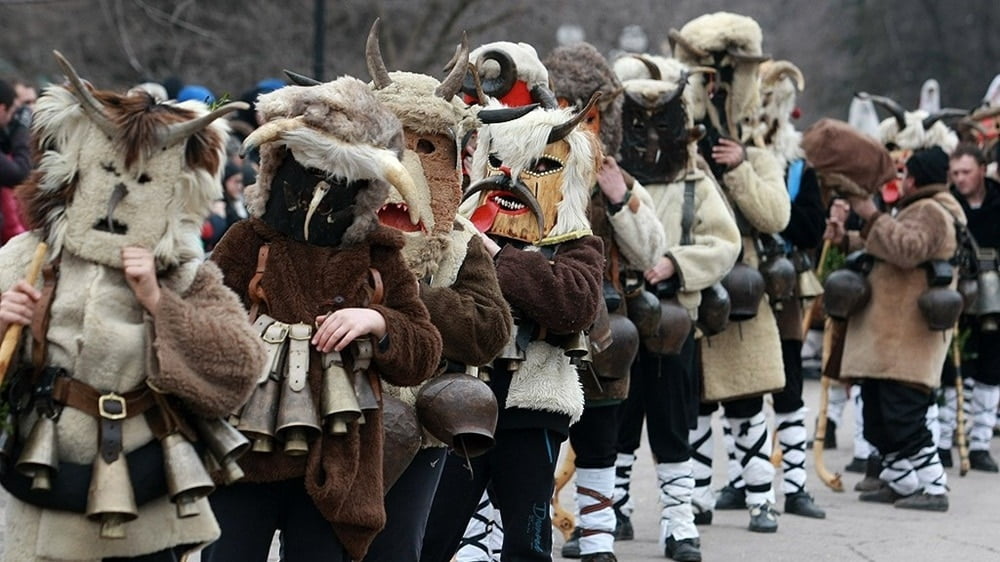
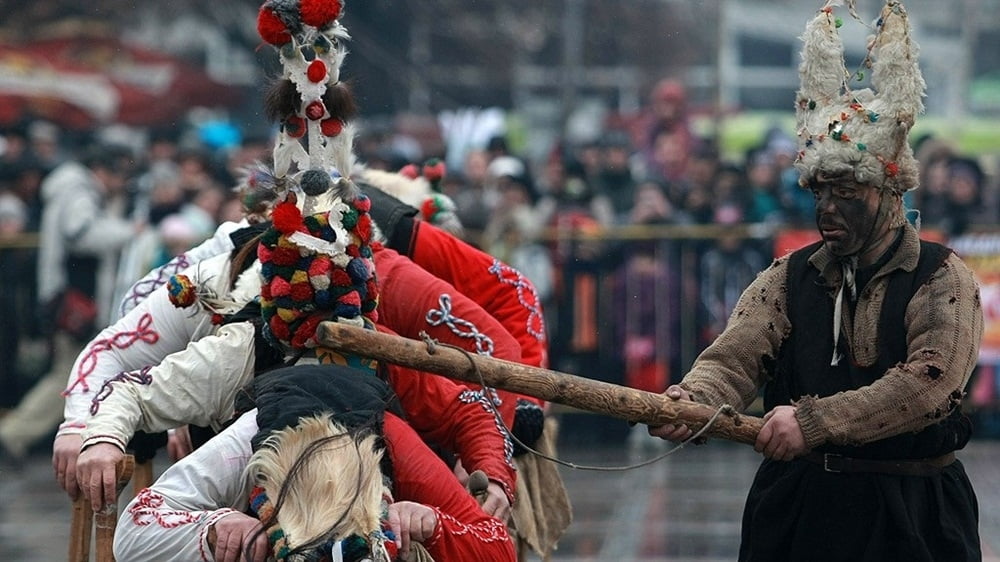
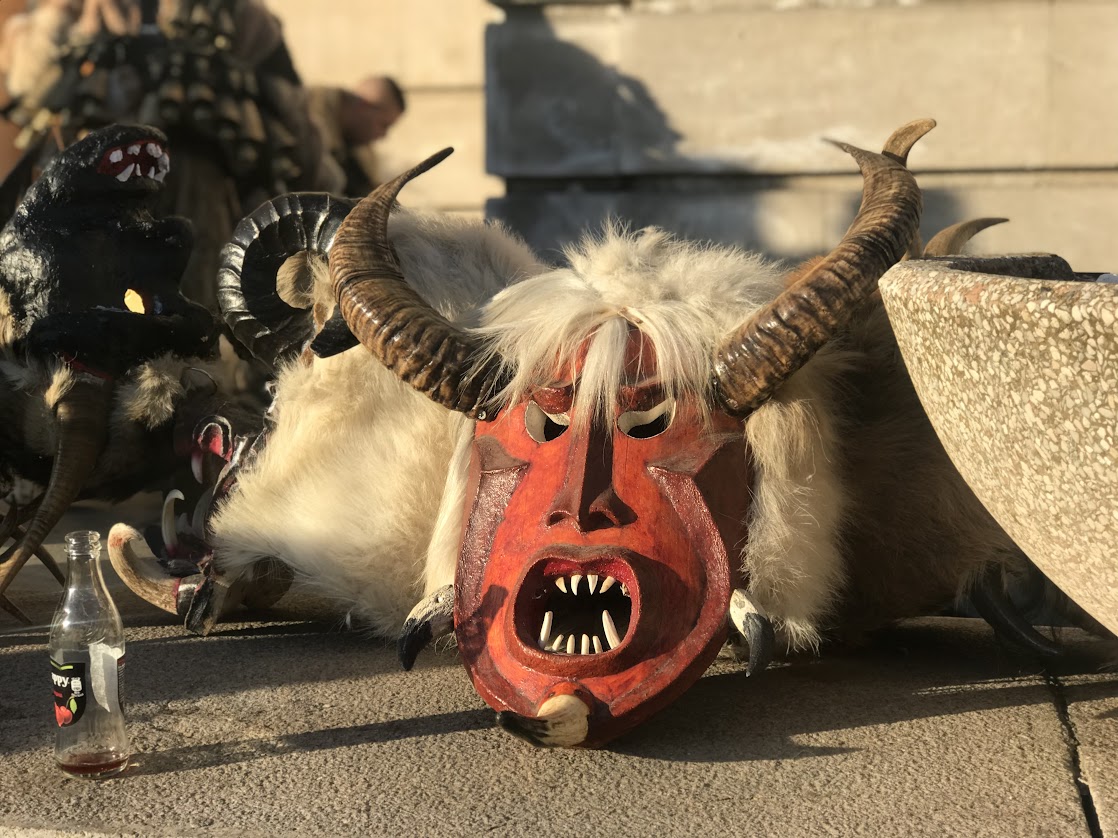
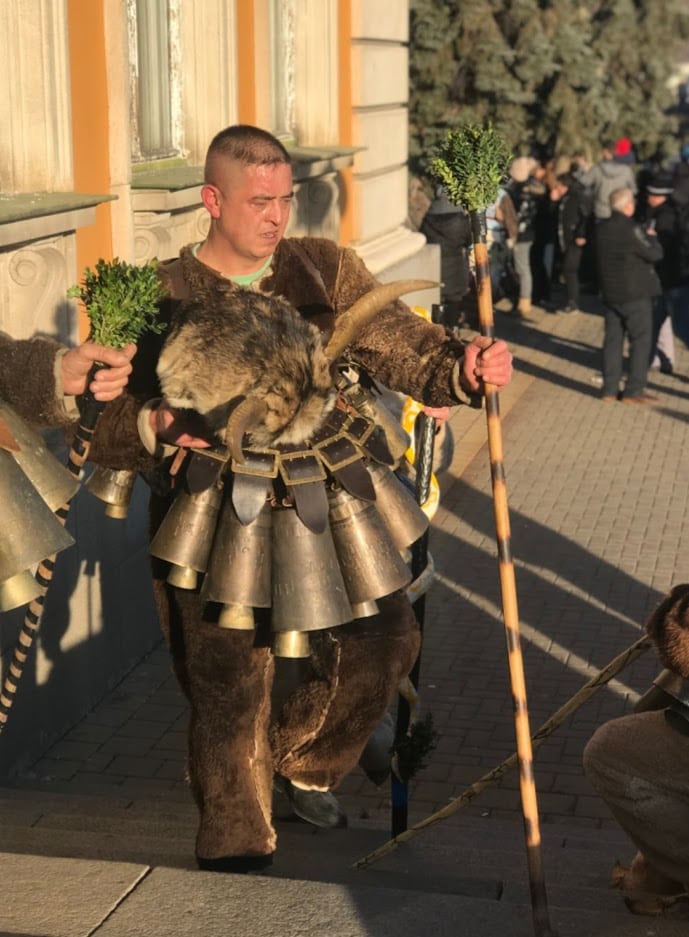
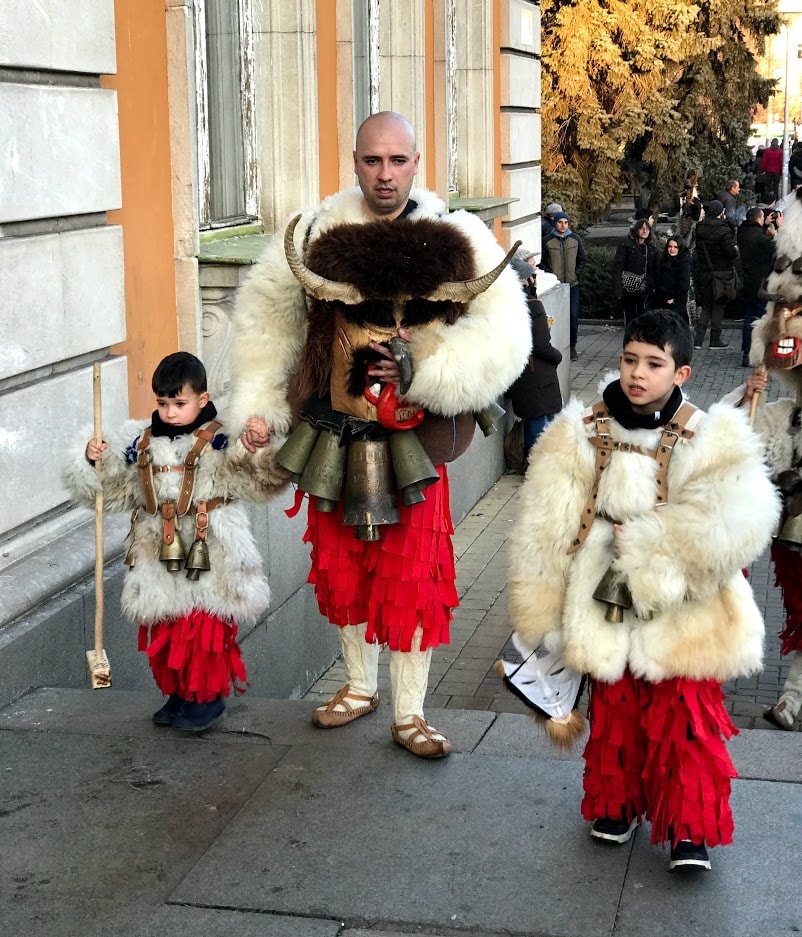
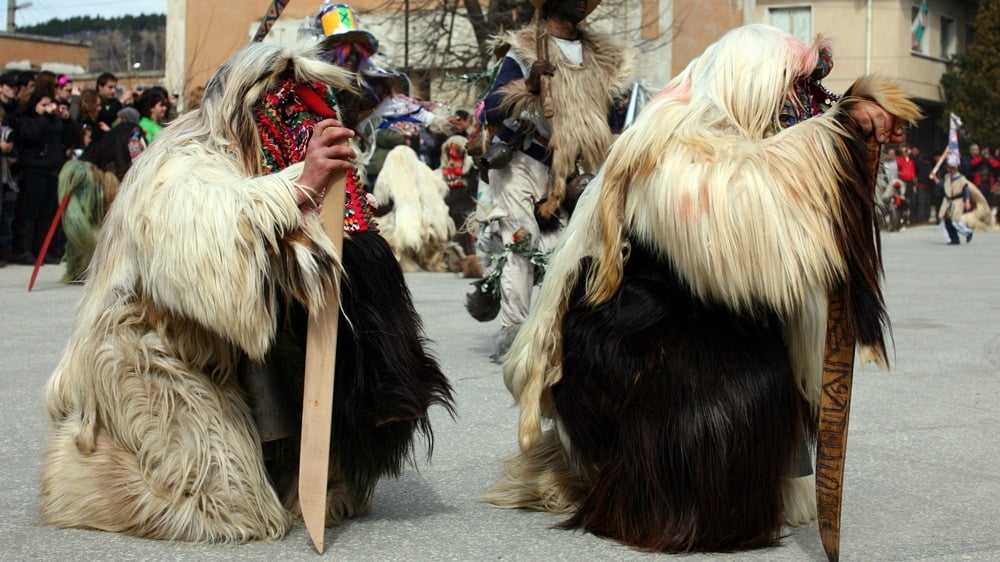
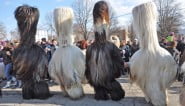
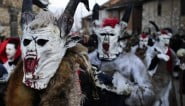
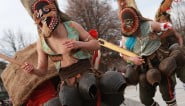
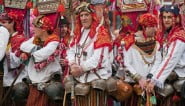
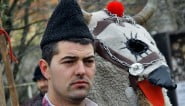
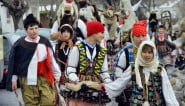
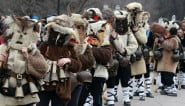
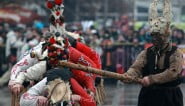
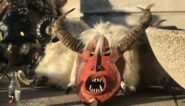
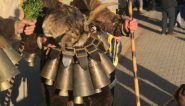
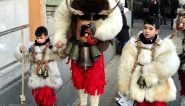
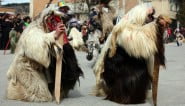
A Word From Our Past Customers
We decided in October to go to the Surva festival in Pernik. Since we didn’t speak the language, we decided we needed a guide to interpret. Adriana was our contact person and was very prompt with answering any questions and very patient as we had changed the itinerary a few times and ended up adding another person to our trip. We had Simon as our guide for two days and he was awesome! I told them we needed to get to the parade route early to get a good spot. I came to see the big hairy people they were the ones I wanted to see the most and take some pictures with them. As more characters exited the area I would drag Simon here there and everywhere, handing him my phone and asking him to take pics of me. I’m so very thankful to have had him not only for interpreting the festival but also for letting me drive him everywhere for pictures.!! I bought a kukeri doll named him Simon!! So much thanks to Private Guide Bulgaria for a great trip and for Simon!!
You are one step away from joining the Kukeri parades
Come with us to the Kukeri Festival ‘Surva 2025’ and you won’t just be watching the even – you’ll get to live it!
More about the Kukeri Festivals in Bulgaria
For visitors to Bulgaria, it is fascinating to witness kukeri parades. Kukeri is a word thought to be derived from Latin, from the word for “hood”. In Bulgaria it is used about men who perform rituals during Kukeri festivals in Bulgaria to chase evil spirits, and their attire is especially picturesque. They wear animal masks, made of wood, with horns; some of the masks are even double-faced, to symbolize good and evil. They are mostly masks of rams, goats, and bulls, and can be adorned with colorful pieces of cloth, mirror pieces, etc. The colors in Kukeri’s masks are carefully chosen: red prevails, to remind of the revival in nature, the sun, and nature’s fertility, black is added to symbolize earth, and white stands for light and water.
Hanging on kukeri’s waists are large bells, made from copper or brass, which sound as the performers of the ritual do their dancing. Chasing evil spirits by Kukeri can be witnessed both in the period around New Year’s Day and prior to Lent.
The dances performed by Kukeri take place at night. That is done to avoid being caught by the sun’s rays. The procession of Kukeri goes through the village and rings their bells, pushing away evil spirits by the bell chiming and their scary costumes made of sheep or goat pelts. But they also bring another benefit with their dances.
The popular belief is that kukeri dances ensure auspicious harvest and health for the villagers. Having gone around the village, the group of kukeri gathered in the central square. There they launch into picturesque dancing and everyone gathers to watch.
In some villages, on New Year’s Eve, the so-called “Camels” ritual is performed. The “camel” consists of two small willow trees, about 1 to 1.5 meters high, joined by rods. That is the skeleton which is covered with cloth. The “camel” head is covered with hide, and at its back, some bells are attached. The camel carries a young lad who is strong and healthy, to be able to defeat another “camel” if he comes across it. Other lads dress in fur coats, with bells at the waist, and masks on their faces. These lads are called “dividzhii”.
They also hold wooden swords and maces in their hands, and together with the “camel” perform ritual movements. To be able to bring prosperity and fertility to the village, the lads should not let the villagers recognize them. The ritual movements include jumping, to help wheat grow high; lying on the ground, to help make wheat ears heavy, and lying on the ground too; rolling on the ground, said to bring earth’s strength to people. The bell sounds help to chase evil spirits away.
Join us on a journey through Bulgarian customs and traditions. Send your inquiry now and let us create the perfect private tour.
Other Kukeri Festivals in Bulgaria
You can also witness the Kukeri masks and dances by visiting the following locations:
Jan 11 – XVII Kukeri and Masquerade games “Simitlia – the ancient land of the Kuker” in Simitli
Jan 11 – Kukeri celebration in Ravno Pole, Elin Pelin
Jan 11 – “Surva 2020”, Gnilyane, Novi Iskar, 12:00 pm on the central square
Jan 11-12 – Kukeri celebration in Lesnovo, Elin Pelin
Jan 13-14 – “The magic of Surva” in the Pernik and Breznik vilages
Jan 13 – “Surva Fire and Games” in Piperkov Chiflik, Kyustendil
Jan 14 – “The Old Surva”, Kuker celebration in Strumsko, Blagoevgrad
Jan 18 – ХVII Masquerade Festival „Surova” in Breznik
Feb 22 – “Kukove” in Rakovski
Feb 27 – Mar 1 – XXI International Masquerade Festival “Kukerlandia” in Yambol
Mar 1 – National Kuker Celebration “Pokladi” “Sirni Zagovezni” in Momin Prohod
Mar 1 – Sirni zagovezni in Kalugerovo
Mar 1 – Dervish Day in Slavovitsa, Pazardzhik
Mar 1 – Sirnitsa in Chelopech, Sofia
Mar 1 – Dervish Day in Lesichovo, Pazardzhik
Apr 12 – Kukeri celebration in and Easter in Eleshnitsa, Blagoevgrad
